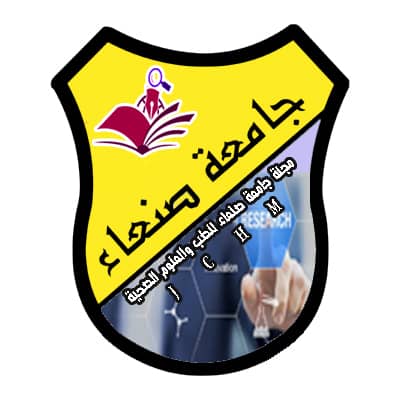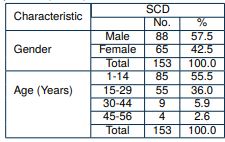Red Cell Alloimmunization and Autoimmunization in Transfusion Dependent Sickle Cell Disease Patients at the Yemeni Society of Thalassemia and Genetic Blood Disorders in Sana'a City, Yemen
Main Article Content
Abstract
Objectives: Red cell alloimmunization is a major complication in sickle cell disease (SCD) patients, resulting in delayed hemolytic transfusion reactions (HTR) and hyperhemolysis. The rate of SCD alloimmunization in Arabic countries varies from 4.3% to 65.5%. This study is the first research that aimed to determine the prevalence and phenotypes of red cell allo/autoimmunization in transfusion-dependent SCD patients at the Yemeni Society of Thalassemia and Genetic Blood Disorders (YSTGBD) in Sana'a city, Yemen. Materials and methods: This cross-sectional study was carried out on a total of 153 SCD patients who received multiple blood transfusions during the period from December 1, 2023, to April 30, 2024. Data was collected using a standard-designed questionnaire. Blood samples were used for blood group determination, Rh typing, and RBC alloantibody/autoantibody detection. Data was analyzed using SPSS version 26. Results: Among 153 SCD patients, there were 88 males and 65 females, aged 1-56 years. The most common blood group was O (58.2%), followed by A (30.7%), B (9.8%), and AB (1.3%). There were 86.3% of patients who had RhD+, while 13.7% had RhD-. The prevalence of alloantibodies and autoantibodies was 9.15% and 1.3%, respectively. Anti-E alloantibody had the highest prevalence (35.7%), followed by anti-K alloantibody (28.6%), anti-c antibody (21.4%), and anti-C and anti-e alloantibodies (7.1% each). Conclusion: Alloimmunization and autoimmunization were found with a low rate among transfusion-dependent sickle cell disease patients in Sana'a City, Yemen. The most frequent alloantibodies identified were anti-E, anti-K, anti-c, anti-C, and anti-e antibodies.
Downloads
Article Details

This work is licensed under a Creative Commons Attribution-NonCommercial-NoDerivatives 4.0 International License.

